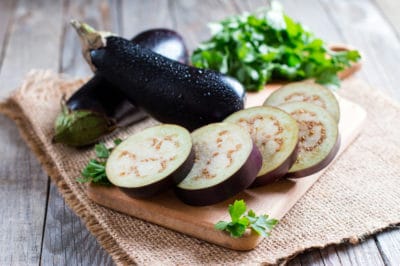The Best Tasting Eggplant Seeds
To get the smallest and best tasting eggplant seeds in your fruit, select young eggplants from your garden. If you allow you eggplants to grow too large, the seeds become bitter and turn brown, and the skin becomes dull. When picking your eggplants, look for small, firm fruit with shiny skin for the best flavor.
Saving Eggplant Seeds
If your eggplants grow too large, don’t discard them. You can save the seeds for next year’s crop. Mature eggplants produce the best seeds for saving, and planting in the spring. Wait for the eggplant’s skin to turn brownish, pick it, and store it in your shed or other enclosed space for about a week. The eggplants will be soft, at this point.
How to Prepare Eggplant Seeds for Storing
Once your eggplants are soft, follow these steps to prepare your seeds for planting next season’s garden:
- Peel off the outer skin
- Cut the flesh with the seeds into thin slices
- Soak the slices overnight, until the seeds break away from the pulp
- After separating the seeds, drop them in water
- The best seeds will sink
- Drain the seeds on mesh and dry for two weeks before storing
Storing Eggplant Seeds
Once your seeds are dry, you can keep them in storage for up to three years. Use mesh bags, manila envelopes, mason jars, plastic containers or aluminum foil to store your dried seeds, as long as they’re air tight. Put them in a cool place that’s about 59°F (15°C). For long-term storage over three years, place your eggplant seeds in the refrigerator.
Growing Eggplant Seeds
In the spring, get your seeds out of storage, and get ready for your new eggplant crop. Plant your seeds from 10 to 12 weeks before the last frost. It takes from two to three weeks for the eggplant seeds to germinate. They need warm conditions from 80°(27°C) to 90°F(32°C). You can plant four seeds in a pot, then thin the seedlings after they emerge, so they’re about 3 inches apart. When they reach 6 to 8 inches, transplant them to your garden or containers.
